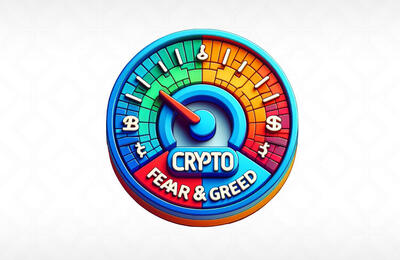
The film industry has long been known for its challenges in financing independent films, with traditional funding models often favoring established studios and producers. However, blockchain technology, and specifically Ethereum, offers a new and innovative solution to these challenges.
Ethereum is a decentralized blockchain platform that enables the creation of smart contracts, decentralized applications, and decentralized autonomous organizations. It can be used to create a transparent and secure funding model for independent films, allowing for more efficient and equitable distribution of funding.
By leveraging blockchain technology, filmmakers can create tokenized assets, crowdfunding campaigns, and more efficient payment systems, which can help level the playing field for independent filmmakers and democratize film financing.
Benefits of Ethereum in Film Financing
A decentralized and transparent funding model is one of the key benefits of using Ethereum in film financing. Ethereum's blockchain technology enables the creation of smart contracts, which can automate funding and distribution of resources, providing a transparent and efficient funding model.
The use of smart contracts can also help to eliminate intermediaries, such as banks or crowdfunding platforms, which can reduce transaction fees and increase the amount of funding available for independent films. The transparency of the blockchain technology can also provide investors and audiences with visibility into how their investments are being used, creating a more democratic and equitable financing model for independent films.
Another significant benefit of using Ethereum in film financing is the increased access to global investors. Traditional film financing models often rely on a limited pool of investors, which can limit the diversity of film content and the opportunities for independent filmmakers. Ethereum's global and decentralized nature allows for a wider pool of investors to participate in film financing, regardless of their location or background. This can provide more opportunities for independent filmmakers to access funding and create a more diverse and inclusive film industry.
Ethereum can also offer more efficient and cost-effective transactions in film financing. The use of cryptocurrency, such as Ether, can enable faster and cheaper transactions, eliminating the need for intermediaries and reducing transaction fees. Additionally, the use of smart contracts can automate the distribution of funding and royalties, reducing the administrative burden and costs associated with traditional financing models. These efficiencies can help independent filmmakers to access funding more quickly and cost-effectively, enabling them to focus on their creative vision and bring their films to a wider audience.
Use Cases of Ethereum in Film Financing
Tokenization of film assets is one of the most promising use cases of Ethereum in film financing. Tokenization refers to the creation of digital tokens that represent a specific asset, such as a film. These tokens can then be sold to investors, who own a share of the underlying asset and can benefit from its success. In the film industry, tokenization can allow for more efficient and transparent distribution of funding, as investors can purchase and sell tokens on a global marketplace. Tokenization can also help to democratize film financing by providing more opportunities for independent filmmakers to access funding and connect with audiences.
Decentralized crowdfunding platforms are another important use case of Ethereum in film financing. These platforms allow filmmakers to raise funding from a wider pool of investors, without the need for intermediaries such as banks or crowdfunding websites.
Many crypto companies, including some online gambling platforms, are now sponsoring or funding new movies by donating Ethereum or other cryptocurrencies. This allows filmmakers to access an alternative source of financing and it provides an opportunity for crypto companies to gain brand exposure in the film industry. By financing a film, an Ethereum casino can potentially have their brand displayed on screen, helping them to reach new audiences and increase their customer base. Additionally, the use of blockchain technology can increase transparency and security in film financing, potentially leading to a more democratic and fair system.
This model can be achieved by creating a decentralized marketplace for in-game assets, where players purchase digital items using Ethereum tokens, with a portion of the proceeds directed towards funding independent films. By tokenizing these assets using Ethereum, investors can participate in the success of the film and earn returns on their investment. Such a model can democratize film financing by providing independent filmmakers with a new avenue to access funding and reach wider audiences, creating new opportunities for the film industry.
Distribution and royalty payments are another area where Ethereum can provide benefits to the film industry. Ethereum's smart contract technology can automate the distribution of royalties, ensuring that investors and filmmakers receive their fair share of profits. This can reduce administrative burdens and costs associated with traditional distribution and payment models. Additionally, smart contracts can enable more efficient and transparent distribution of content, as the terms and conditions of distribution can be encoded directly into the contract. This can help to prevent piracy and ensure that content is distributed in a fair and equitable manner.
Challenges and Solutions for Ethereum in Film Financing
The use of blockchain technology in film financing raises regulatory and legal challenges related to securities laws, money laundering, and taxation. Solutions to these challenges include compliance with existing regulations, the development of new regulatory frameworks, and the use of smart contracts to automate compliance and ensure transparency.
The adoption of blockchain technology in film financing faces challenges related to technical scalability, interoperability, and user adoption. Solutions to these challenges include the development of new blockchain protocols, the use of decentralized storage solutions, and the creation of user-friendly interfaces to encourage adoption and usage.
Key Takeaways
Ethereum's use of blockchain technology has the potential to transform the film industry by enabling new models of financing and distribution. Decentralized crowdfunding platforms and the tokenization of film assets can provide independent filmmakers with new avenues to access funding and reach wider audiences. Although there are regulatory and technical challenges to be addressed, the benefits of using Ethereum in film financing are clear.
By embracing innovation and new technologies, the film industry can create new opportunities for independent filmmakers and audiences alike. The potential impact of Ethereum on the film industry is significant, and we can expect to see continued innovation in this space, leading to new and exciting developments in the years to come.













